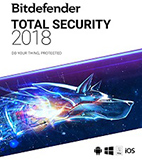When I was a teenager, my mother was so intimidated by our VCR, she asked me to write down instructions on how to program it. She still calls for frequent tech support, often wanting to know how to make the “whozit” do the “thingie”. Even though VCRs have gone the horse-and-buggy route, this drama plays itself out every day in America, with tech-savvy kids leading fearful parents through the land of technology. The “digital divide”—the gulf between the tech-knowledgeable and the tech-ignorant—is alive and well in many families, due to technophobia, lack of time, and other factors. But letting your kids play in the street without understanding the rules of the road is always dangerous—whether it’s a suburban cul-de-sac or the Information Superhighway – the Internet. When your daughter announces her friend is having a sleepover, you know what that means. You know what behavior to expect, and how to make sure she’s safe. You call the hosts, wanting to know whether the kids will be supervised, what the kids will (and won’t) be doing, what the hosts’ rules are on drinking, R-rated movies, etc., and who else will be there. You have a standard battery of sleepover questions, compiled from experience, common sense, and several decades of teen-movie hijinks. When your child gets online, however, many parents don’t understand Internet culture enough to know how to protect their child, or even how to start understanding it.
Your job doesn’t change from the real world to the virtual one. To continue the sleepover analogy, your job is to find out where your kids are sleeping (what sites they frequent), who else is there (who they communicate with online—friends and strangers), and what they’re going to do there (post pictures, chat, game, etc.), and whether their activities are age and content appropriate. To do this, you need to know about popular sites and applications, how to use them, and how to understand your child’s online slang.
It might be tempting to dismiss MySpace, Facebook, YouTube, Friendster or other social networking sites as “just a website”, but until you’ve created an account, logged on, and taken a look around, you are missing out on a large part of your child’s social life. Sites like these are where kids communicate with one another, build their communities, and socialize. Online personality tests, virtual gifts, chat and instant messaging have replaced passing notes in the hallway, making paper fortunetellers, and the silliness you remember as a kid. As one teen told a pollster, “If you’re not on MySpace, you don’t exist.” Remember that this is your child’s world. Rivalries, slights, and hurtful actions are just as painful in the virtual world as they are in the real one. Talk to your kids about their favorite sites. Listen when your kids are talking about their online activities among themselves. Pay attention when they mention sites you haven’t heard of before, write the names down if you need help remembering them, research them for yourself, and ask lots of questions. Pre-Internet, kids kept their secrets in bedrooms or dark basements, away from prying parents. At any moment, a parent might throw open a door, or tromp down the basement stairs, so they knew their privacy was fleeting. Online, kids don’t see their entire audience, and so fall victim to the illusion of privacy. They don’t really think that what they do online could be seen by their grandparents, teachers, college admissions officers, or future employers.
Create your own social network accounts and scout out sites for yourself. Your presence online helps remind them that the Internet is not just a gathering place for people their age. Use a glossary (like GuardChild’s) to decipher your child’s online and chat/text-messaging slang, and then use what you learn to communicate with your children. They might laugh at you, but you’ll get valuable practice at understanding a foreign language and they’ll know that their secrets might not be entirely undecipherable. Cyber culture changes quickly. Keep abreast of new trends, new hot sites, and new dangers. Your membership in GuardChild will help with this. Keep an ear out for trends you see mentioned in magazines, the newspaper, or on websites you visit. Two-Way Communication Give your kids the information they need to stay safe online without lecturing. Encourage discussion by asking non-judgmental questions, respecting their need for privacy, and keeping lectures to a minimum. Discuss how they want to present themselves online (profiles, photos, etc.), and whom they think their audience is. Their answers might surprise you; your interest might surprise them.
Perhaps the most important reason to understand computer and Internet culture is to keep your children safe from sexual predators, online criminals, and cyber bullies, all of whom depend on their victims (and their victims’ families) being uninformed and unaware. If you have an idea of how the virtual world works and a willingness to communicate, you will have the tools to find out who your kids communicate with, what activities they do online, and whether anything inappropriate is going on. What about you, readers? How many of you belong to the same social-networking sites your kids use? How do you keep the “digital divide” from being a problem in your house?









What a great idea to create your own social networking account. I opened a Facebook account and asked my daughter to be my be my friend. Funny how she initially hesitated but finally agreed. I guess she’s concerned about her friends knowing she is friends with her mother. Well, it worked out and we’re friends. However, she is reluctant to make me a friend in her Facebook account. In some ways I understand. However, it does make me concerned about what she’s posting.
I read an article that employers and colleges are asking applicants for their social network accounts and are using this information as part of the screening process. I mentioned this to my daughter and she seemed unfazed.
Now my husband and I are considering purchasing monitoring software to monitor what she does on Facebook.